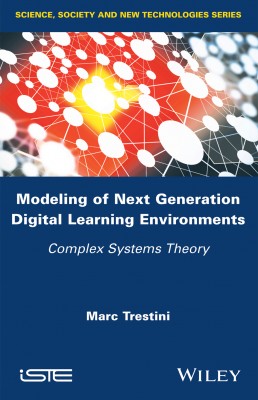
The emergence of social networks, OpenCourseWare, Massive Open Online Courses, informal remote learning and connectivist approaches to learning has made the analysis and evaluation of Digital Learning Environments more complex.
Modeling these complex systems makes it possible to transcribe the phenomena observed and facilitates the study of these processes with the aid of specific tools. Once this essential step is taken, it then becomes possible to develop plausible scenarios from the observation of emerging phenomena and dominant trends.
This book highlights the contribution of complex systems theory in the study of next generation Digital Learning Environments. It describes a realistic approach and proposes a range of effective management tools to achieve it.
1. A Virtual Learning Environment seen as a System of Instrumented Activities.
2. Modeling Instrumented Activity at the Heart of the Virtual Environment.
3. Models of Instrumented Activity Challenged by Technopedagogical Innovations.
4. The Digital Learning Environment in the Paradigm of Systemic Complexity Modeling.
5. Modeling a DLE Perceived as a Complex System.
6. Modeling and Simulation of an MOOC: Practical Point.
Marc Trestini is a Lecturer and Researcher at the University of Strasbourg, France, and Director of LISEC Alsace (Laboratoire Interuniversitaire des Sciences de l’Education et de la Communication – Inter-university Laboratory of Education and Communication Sciences).